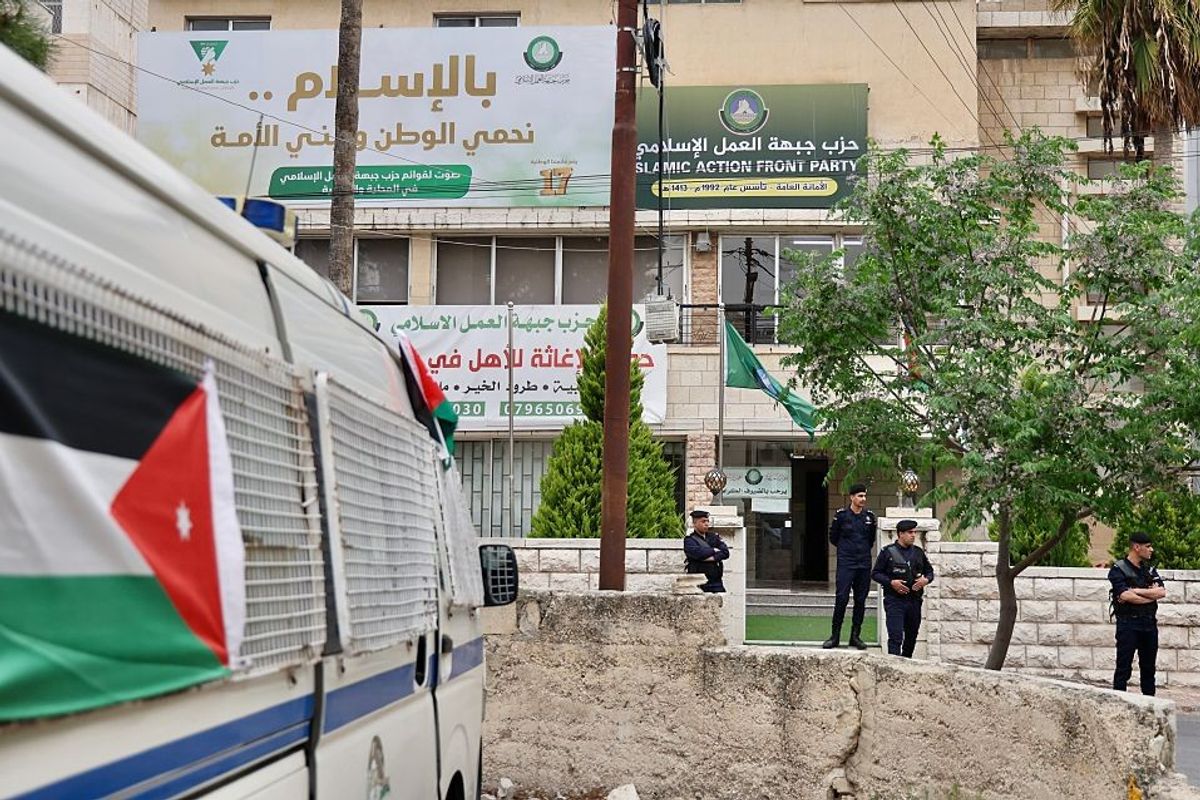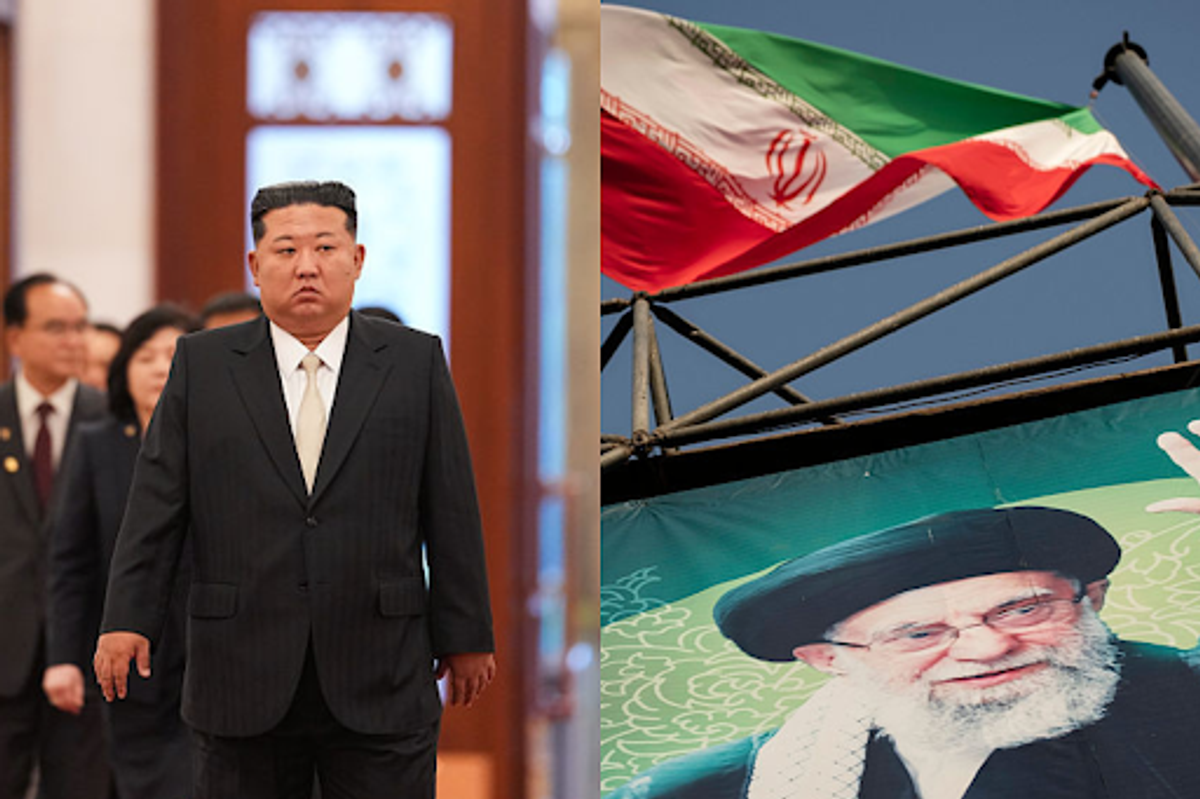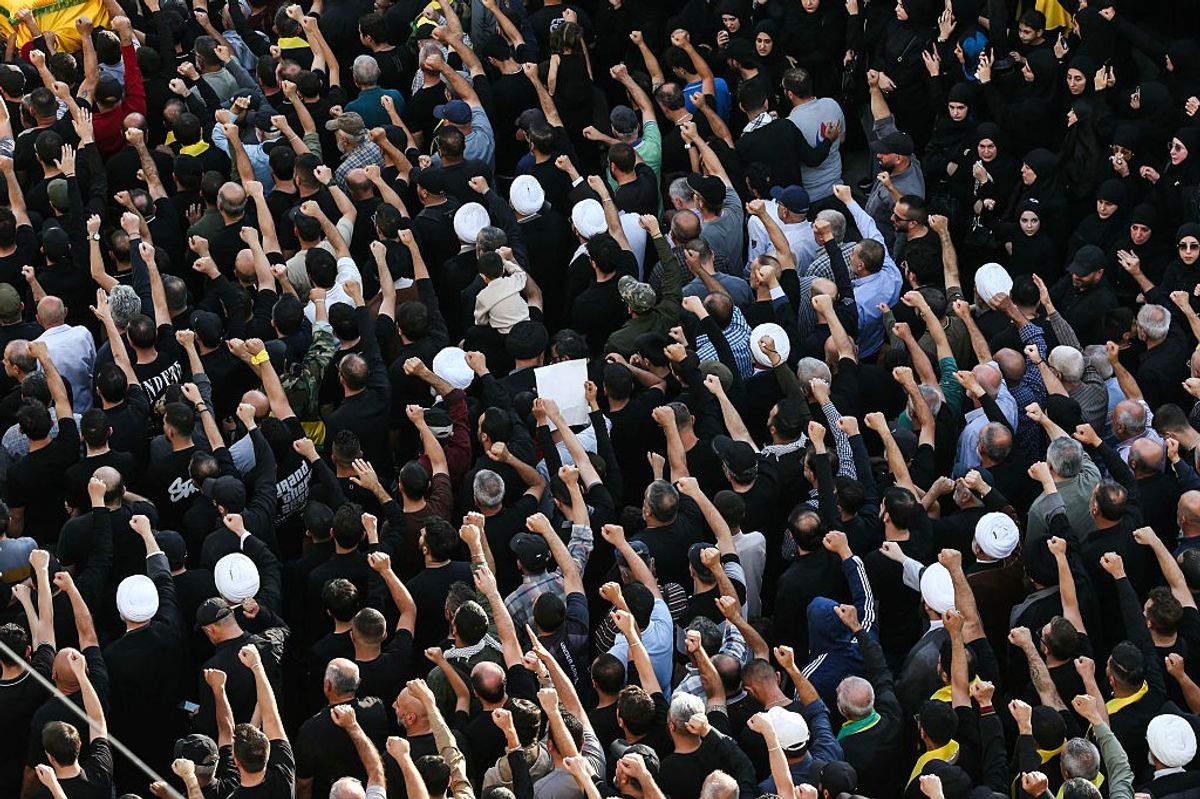EXPERT INTERVIEW — Less than two months before the inauguration of Donald Trump as the 47th U.S. president, the headlines from the Middle East are dominated by the push for ceasefires in Israel’s wars against Hezbollah in Lebanon (looking more lilkely) and Gaza (looking like a distant hope). But beyond the wars and the regional diplomacy, experts note the profound changes that have upended the Middle East since the October 7, 2023 Hamas attacks against Israel and the wars that have followed.
As The Cipher Brief has reported, the last year has seen remarkable shifts in regional power and influence: Israel has done serious damage to Hamas and Hezbollah; a third militant group, the Yemen-based Houthis, has proved surprisingly resilient and threatening to global commerce; and Iran, the patron of all these organizations, suddenly looks surprisingly weak. Meanwhile, beyond the battlegrounds, a regional railway project and the transformative power of artificial intelligence stand ready to bring additional — and perhaps positive — change to the region.
It’s “a very new Middle East from anything we've seen in decades,” Norman Roule, a former National Intelligence Manager for Iran at the Office of Director of National Intelligence, told The Cipher Brief.
Roule spoke with Cipher Brief CEO and publisher Suzanne Kelly in a conversation that covered several of the dramatic changes underway in the region, and the challenges and opportunities that President-elect Trump will find in his Middle East inbox, less than two months from now.
This conversation has been edited for length and clarity.
Kelly: Talk us through the new security dynamic that you're seeing emerge, particularly because of Israel's war and its reach. What does this mean in the Middle East for the U.S.?
Roule: For the Trump administration, we've still got some basic framework principles: The United States does not wish to involve itself in a regional conflict; the U.S. will provide support to its partners to the extent that we feel appropriate to enable their defense against Iranian terrorism; the U.S. will maintain some military presence to support regional stability, but again, without involving itself in the conflict.
For Israel, its new approach will likely involve the following blend: intelligence, which is meant to be actionable against adversaries; enabling an extraordinary military strike to defang the strategic capability from these adversaries; and to recognize that while it may be defended by the United States and others, it fights on its own. And absent that fight, it will face a new Hezbollah, a new Hamas [and] Iranian threats, so it must take the offensive if it is to survive as a state. That is a tectonic shift.
Within Iran itself, you have something very new: Iran has shown that it cannot defend itself against Israel, and that it cannot stop attacks against Iran. But we have also seen that the Israeli massive airstrike did not ignite a regional war. One could say that this might be a way by which some in the U.S. could think we ourselves could strike Iran militarily, if provoked by a kinetic attack or terrorist attack against the U.S. without fear of igniting a similar war. That's a very new place for us to be.
The Gulf states are in a position where they don't wish to see a regional conflict, but they also wish to make sure that they're not part of any Iranian mischief. Russia is, as always, a malign and vindictive actor. And we have seen extraordinary snippets of reporting that Russia may be involved in providing weaponry to the Houthis and some kinetic support to Lebanese Hezbollah. That is a very new Middle East from anything we've seen in decades.
Kelly: Could you talk to us about the impact of the alliance between Russia, Iran, China and North Korea on the Middle East?
Roule: We are watching a situation where soft power, where gray-zone activity, is being used by all of these actors — Russia, China, and Iran primarily — to exert power in their regions while eroding U.S. power.
I think what we've seen since 2014 is an absence of an international approach to respond to gray-zone activity. Our national defense doctrines appropriately talk about great-power struggle, China, Russia. That's all fine. But what happened in the Middle East in the last year and a half didn't involve massive great-power involvement. What we're seeing with China against the Philippines, Russia in Africa, this isn't a traditional land war environment. Of course, Ukraine and Russia, that is a conventional conflict. But we don't seem to have a response for what we're seeing in the Middle East, and I think the Trump administration would be wise to consider how it will deal with such events in the future.
Are you Subscribed to The Cipher Brief’s Digital Channel on YouTube? Watch The Cipher Brief’s interview with CIA Director Bill Burns as he talks about The Middle East, Russia, China and the thing that keeps him up at night. Become a Cipher Brief YouTube Subscriber today.
Kelly: What do you see as the threat of escalation between Israel and Iran now?
Roule: When we think of a war, we traditionally think of a series of battles or activities. It's a very concrete temporal chain. The region is at war. It's just that the violence, the battles take place with a very different chronological layout. And the result is that we can stand back and say, as current Vice President [Kamala] Harris has stated, that we are not in a war environment. But we have aircraft carrier task forces catching dozens of missiles and drones. We have personnel in Iraq who have been attacked. We have Israel under attack. We have the Houthis firing missiles throughout the region. This is an extraordinary conflict.
For Iran, however, it's a different challenge. Israel conducted an amazing strike that not only demonstrated its capacity to neuter Iran's air defense, but it demonstrated a knowledge of Iran's air defense and missile systems to conduct precision activities against very sensitive facilities. Iran needs to think not just how can it respond, but what does it do the day after, when Israel comes in and takes the conflict to the next level? I see this conflict continuing. I just don't see it happening with an immediacy that some may have thought.
Kelly: A lot of people are trying to guess whether the relationship between Israeli Prime Minister Benjamin Netanyahu and President-elect Donald Trump may ever lead to a two-state solution. What do you think about the prospects of that possibility over the next four years?
Roule: Well, everything is a possibility, but that doesn't mean it's a probability. A two-state solution requires the following pieces, which both Benjamin Netanyahu and [Palestinian President] Mahmoud Abbas must accept: The Israelis must declare an end to major hostilities in Gaza and withdraw their forces. An international peacekeeping force must come in. There must be demonstrated stability to allow the Palestinian Authority or some other similar organization to establish good governance. You then need to have a reformed Palestinian Authority, ceasing such things as the pay-for-slay activities and others that many have rightfully complained about. And then you need to have an irreversible plan for a two-state solution that would encourage the Gulf states to establish diplomatic relations with Israel.
We talk about this as if we've got to do something, or we need to pressure one of the partners of the other. But at the end of the day, we can't want this more than they do. And that's probably one of the biggest things I've seen in following the Middle East and the West over the decades. People forget that the Palestinians themselves must undertake significant reforms so that the Palestinian Authority is effective, popular, not corrupt, and capable. And the Israeli government will have to have some serious adjustments in its settler population and locations, and will have to accept a Palestinian state on its border, and the risk that a Hamas-like organization could in the future dominate that. Those are very complicated.
Kelly: Let’s shift to the Red Sea, where it's been an ongoing headache, with attacks continuing there. The U.S. has taken some actions over the last couple of years, but the attacks continue to affect global commerce. What do you see as the challenges and opportunities for the new administration to take this problem head on?
Roule: This needs to be an international response. It was quite telling that although the ships from a number of NATO countries were under fire from the Houthis, this was not a major issue at the NATO conference in Washington earlier this year. That's extraordinary. They spent more time on China and the future kinetic threat than they spent discussing the ongoing kinetic threat with missiles and drones fired at their personnel. And this is a military organization meeting. That tells you a lot. For the Trump administration, there's going to be an effort to say, Why is this our fight alone?
The second issue is for the U.S. Are we a sea power? If we're a sea power, then we've got to show that power is effective. The Houthis are not a ragtag militia. They’re armed with more than a dozen Iranian missile systems, more than a half dozen Iranian drone systems. This is a threat, but they're not a first-world threat and something could be done to confront that. The policy guidance has not been there, and as a result we have thousands of Americans on these aircraft carrier task forces who are at risk, protecting primarily Chinese and Russian shipping.
This remains unresolved after more than a year or two of fighting. This is quite a statement. Can we say we will protect the Malacca Straits in Asia if we cannot protect the integrity of the Red Sea in the Middle East? It's a serious and reasonable question to ask.
Everyone needs a good nightcap. Ours happens to come in the form of a M-F newsletter that provides the best way to unwind while staying up to speed on national security. (And this Nightcap promises no hangover or weight gain.) Sign up today.
Kelly: There’s a planned rail and shipping corridor that would link India with the Middle East, with Europe. What do you see the impact being on that particular shipping route under a new Trump administration? And why does that matter?
Roule: This is one of the most extraordinary economic integration efforts in modern history. It has been strongly supported by the Biden administration, strongly supported by regional actors. You have to imagine a connection of transportation, communications, and energy lines that would go from India, and connect through the Gulf Cooperation Council states, Oman and the United Arab Emirates, moving north, northwest, eventually through Israel and the Levant and then to Europe. Just laying that map out in your head, you already realize this is why we need peace in Israel and the resolution of the Palestinian problem.
If this happens, it not only competes but is also an improvement on any Belt and Road Initiative the Chinese could ever imagine. It improves security for communications lines between Asia and Europe. And it truly does integrate this region and become an engine of prosperity.
The Trump administration will absolutely support this. It's good for American business. It's good for the region. It's good for our strategic goals. But it does require resolution of the Israel-Palestine issue and a tremendous amount of investment. Not by ourselves, but primarily the actors in the region. Look at the Saudis who are building rail lines north, the Emiratis and others who are building rail lines east of the Arabian Peninsula. You can see this infrastructure is being built, but will take some years to complete.
Kelly: What is the impact of artificial intelligence on the Middle East and how are leaders in the region thinking about it?
Roule: Let’s start with the Gulf Cooperation Council (GCC) for a few reasons involving capital, ambitions and their national transformation. The GCC controls about $4 trillion of public investment funds. That's a large percentage of the foreign direct investment capacity in the world. Their economies are integrated globally. Their populations are small. It gives them the opportunity to think north, south, east, west. But to do so, they need an edge. They need something to pull themselves together to give them a superpower.
Their economies are being transformed by artificial intelligence. The Emiratis took an early lead on this with financial intelligence and medical artificial intelligence. The Saudis are investing heavily. All GCC states will have artificial intelligence farms. But the consequences of this are dramatic. The social transformation capacity given the investment of tens, hundreds of billions of dollars in this area, tied to the U.S., with an impact in the global north, south, India, Africa — it's as consequential as the discovery of oil in 1938. Now I know that sounds like hyperbole, but this will involve dozens of data centers of unprecedented size and scale. The construction is already underway.
And where this goes, I can't predict because the technology is beyond my understanding. But I can say that it is foundational to the social and economic structures of these countries and their relationship with the United States and the impact on our society and our economy, much as oil has done.
Read more expert-driven national security insights, perspective and analysis in The Cipher Brief.














